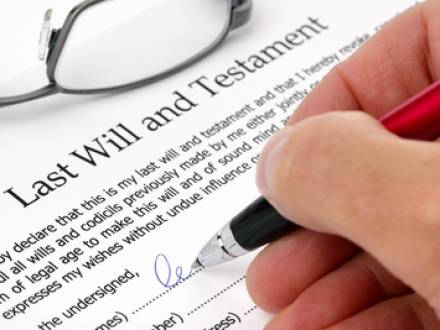Can I Write My Own Will in Maryland Without a Lawyer?
 Legally, you can write your own will in Maryland. However, this option comes with risks. Maryland law sets strict standards for what makes a will valid. Even minor errors can cause delays and disputes. You could even unintentionally invalidate your will. Before proceeding on your own, speak with a Silver Spring, MD wills attorney to make sure your final wishes are fully protected.
Legally, you can write your own will in Maryland. However, this option comes with risks. Maryland law sets strict standards for what makes a will valid. Even minor errors can cause delays and disputes. You could even unintentionally invalidate your will. Before proceeding on your own, speak with a Silver Spring, MD wills attorney to make sure your final wishes are fully protected.
Why Do You Need a Will in Maryland?
A will gives you control over what happens to your assets after death. If you die without one, Maryland’s intestate succession law will decide how your property is divided. These laws might not reflect your personal wishes and may leave out important people in your life. A valid will allows you to:
-
Decide who receives your property and specific items
-
Name a personal representative to manage your estate
-
Appoint a guardian for minor children
-
Minimize the chances of family disputes
-
Make charitable donations
Having a will in place ensures your intentions are known and helps make the legal process easier for your loved ones.
What Are the Legal Requirements for a Valid Will in Maryland?
Maryland has clear legal rules about how a will must be written and signed. According to Md. Code, Estates and Trusts § 4-101, the person writing the will, called the testator, must be at least 18 years old and mentally competent. The will must be in writing and signed by you or by another person in your presence and at your direction.
Additionally, Md. Code, Estates and Trusts § 4-102 requires that at least two credible witnesses sign the will. These witnesses must do so in your presence. Although it is legal for a beneficiary to act as a witness, doing so could lead to challenges in probate court and should be avoided. Maryland does not recognize unwitnessed, handwritten wills. Any will that fails to follow these legal steps may be declared invalid.
What Are the Risks of Writing a Will Without a Lawyer in Maryland?
Writing your own will might seem like an easy undertaking. However, some risks may not be obvious until after your death, when it is too late to fix them. Apart from the risk of failing to follow the legal requirements, a common issue is the use of vague or unclear language. For example, if you leave property "to my children" but fail to name them, this could lead to confusion, especially in blended families. You may also unintentionally leave out key details, such as backup beneficiaries, how debts should be handled, or what happens if someone named in the will dies before you.
Maryland law allows you to amend or revoke your will, but only if you do so properly. Under Md. Code, Estates and Trusts § 4-105, a will can be revoked by executing a new one or physically destroying the old one with the intent to cancel it. If this process is not followed correctly, both wills could be disputed in court.
Schedule a Free Consultation With a Silver Spring, MD Estate Planning Attorney
When it comes to drafting a will, experience matters. At The Eleff Law Group, you will work directly with Attorney Susan Eleff, who has provided trusted legal counsel since 1978. With offices in Silver Spring, Bethesda, and Frederick, Attorney Eleff offers over 40 years of hands-on experience in estate planning and probate. Backed by a knowledgeable legal team, the firm is known for delivering professional and personalized service. Call 301-857-1990 to contact a Bethesda, MD wills lawyer today and schedule your free consultation.





